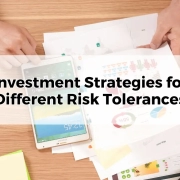How can you determine if an SMSF is right for you?
Table of Contents
TogglePlanning for retirement as a senior, guardian, or family member can feel overwhelming. Understanding your options and making informed decisions is crucial, especially when considering a self-managed super fund (SMSF).
This blog post aims to help you navigate the world of SMSFs. We’ll break down the key factors to consider, weigh the pros and cons, and guide you towards making the best decision for your unique circumstances. Whether you’re a senior, a guardian, or a family member caring for a loved one, this information is designed to empower you with knowledge and confidence as you plan for a secure future.
How can you determine If an SMSF is right for you?
Before diving into the world of SMSFs, it’s essential to assess if it’s a good fit for your individual circumstances. Here’s what to consider:
Financial Check-Up
Super Balance
Generally, a minimum balance of $100,000 is recommended for an SMSF, as setting up and managing it involves costs. Consider your existing super savings and potential future contributions.
Investment Savvy
Managing an SMSF means making investment decisions. Be honest with yourself – are you comfortable with this responsibility and do you have the knowledge or willingness to learn?
Risk Tolerance
SMSFs offer more investment freedom, but also carry higher potential risk. Are you comfortable with market fluctuations and the possibility of losses?
Personal Suitability
Time Commitment
Running an SMSF is time-consuming. Tasks like admin, compliance, and reporting require dedication. Can you allocate sufficient time, or will it burden you or your family?
Understanding Regulations
SMSFs adhere to strict laws and regulations. Are you comfortable learning and staying updated on these complexities, or would professional help be needed?
Control Preference
Do you value having direct control over your investments and retirement choices? An SMSF offers that flexibility, but comes with added responsibility.
Family Impact
Shared Responsibility
If family members assist with managing the SMSF, discuss expectations and workload beforehand. Ensure everyone is comfortable and prepared.
Succession Planning
What happens to the SMSF after your lifetime? Discuss beneficiary arrangements and succession plans with your family to avoid future complications.
Remember, this is just a starting point. Each person’s situation is unique, and professional advice is crucial before making any decisions. Stay tuned for the next section, where we explore the pros and cons of SMSFs in more detail!
Exploring the Pros and Cons of an SMSF
Now that you’ve assessed your personal suitability, let’s explore the potential benefits and drawbacks of owning an SMSF:
Pros
Investment Choice
Unlike standard super funds, SMSFs offer greater freedom to choose where your retirement savings are invested. This allows you to tailor your portfolio to your specific goals and risk tolerance.
Potential for Higher Returns
By actively managing your investments, you have the potential to achieve higher returns compared to traditional super options.
Remember, with higher potential rewards comes higher potential risk.
Flexibility
You have the flexibility to adjust your investment strategy as your needs and market conditions change. This adaptability can be valuable in planning for different retirement stages.
Alternative Investments
With an SMSF, you can explore alternative investments like direct property (restrictions apply), which may not be available in regular super funds. This diversification can potentially strengthen your portfolio.
Cons
Costs
Setting up and running an SMSF involves ongoing costs for administration, compliance, and accounting. These fees can be significant, especially for smaller funds.
Time Commitment
Effectively managing an SMSF requires dedication and time investment. Researching investments, preparing reports, and staying updated on regulations can be demanding.
Increased Responsibility
As the trustee of your SMSF, you are fully responsible for investment decisions and compliance. This carries significant risks and potential penalties for errors.
Complexity
Understanding and adhering to SMSF regulations can be challenging. Seeking professional help can add to the overall cost and complexity.
Remember, every circumstance is unique, and seeking professional advice is crucial before making any significant decisions.









